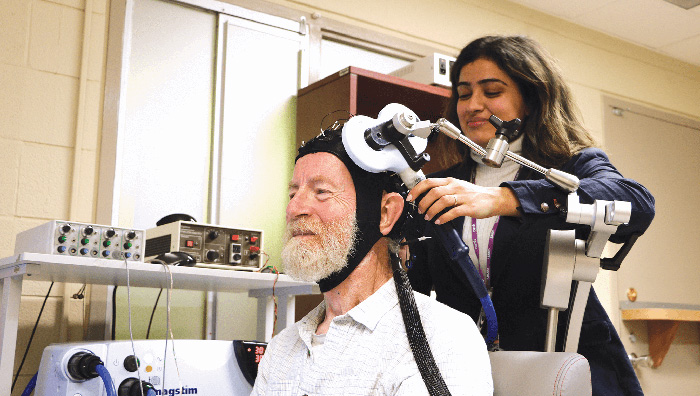Combined with behavioral therapy, researchers say magnetic seizure therapy looks promising as a treatment for patients with suicidal ideation, borderline personality disorder and treatment-resistant depression. Centre for Addiction and Mental Health
The use of non-invasive brain stimulation, such as transcranial magnetic stimulation, to address mental health issues has become increasingly popular and promising in recent years; and broadly deemed a more attractive alternative to electroconvulsive therapy.
Specifically, researchers and physicians are investigating the utility of magnetic therapy to treat conditions like major depression that defy pharmaceutical or other treatments.
In a new study, published January 19, 2023 in Nature Mental Health, scientists at a trio of institutions — Harvard University, University of Toronto and Centre for Addition and Mental Health in Toronto, Canada — describe a completed feasibility trial of magnetic seizure therapy combined with dialectical behavior therapy to treat suicidal patients with borderline personality disorder and treatment-resistant depression.
(Senior author of the study is Zafiris J. “Jeff” Daskalakis, MD, PhD, chair of the Department of Psychiatry at UC San Diego School of Medicine, who conducted the research at the University of Toronto before moving to UC San Diego in 2020.)
The primary purpose of the study trial was to determine whether it was feasible to conduct the complex, dual treatment protocol. Out of 62 participants screened, 21 were enrolled in the trial and 19 completed the intervention.
The researchers noted that conjoint magnetic seizure therapy with dialectical behavior therapy led to rapid, significant and clinically meaningful reduction in suicidal ideation at five weeks, which was sustained at the four-month follow-up. Behavioral therapy alone produced no similar benefit. The researchers reported no treatment-related effects on cognition or serious adverse events.
They concluded that the encouraging results warrant further exploration in a sham-controlled randomized clinical trial.
— Scott LaFee
